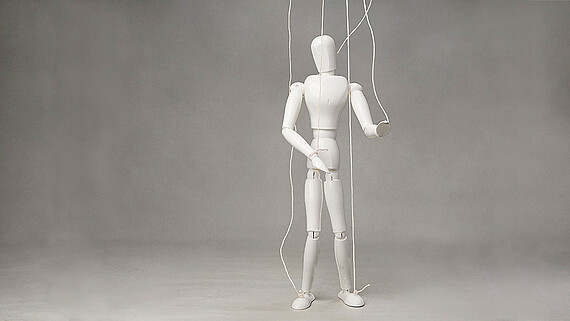
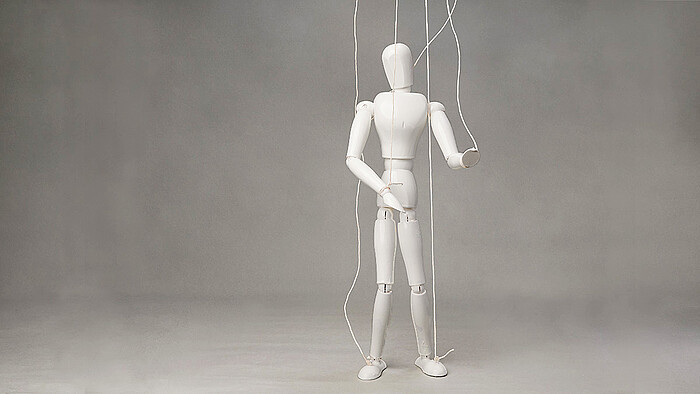
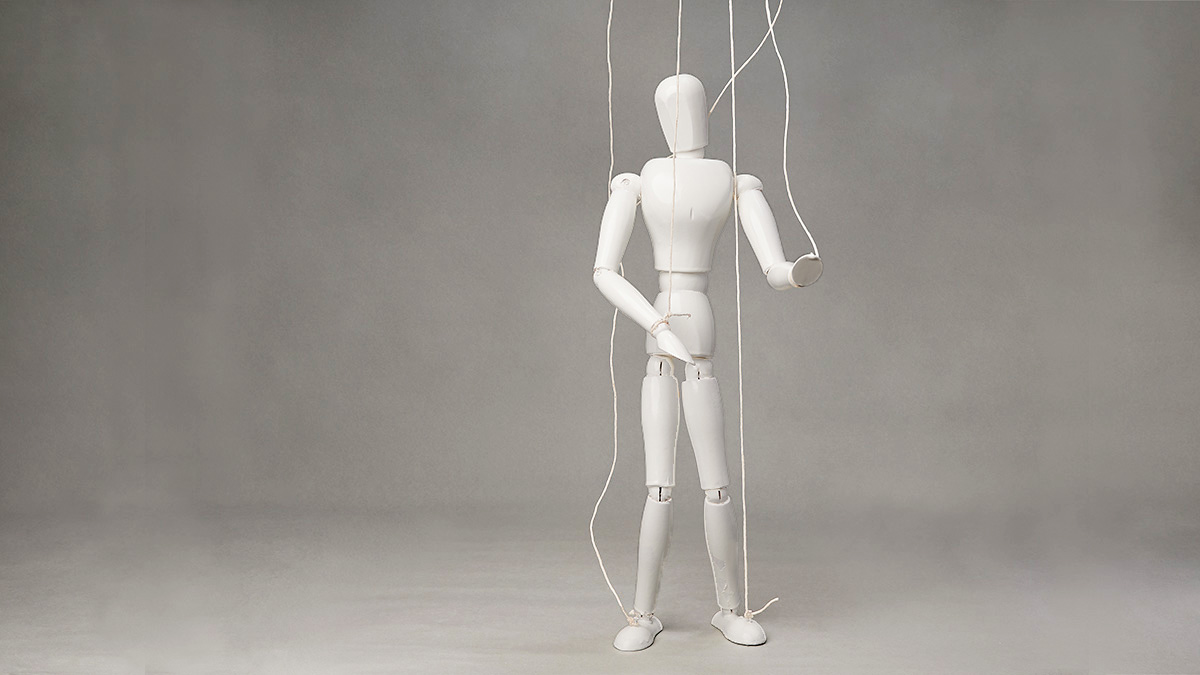 ©
Sören Pinsdorf / LUH
©
Sören Pinsdorf / LUH
In the seventeenth century, the predominant view was that a person’s actions followed divine destiny and their future was predetermined. But Leibniz saw potential for development in the Creation narrative. God, he said, gave humans the ability to weigh their options – and free will.
Freedom, according to Leibniz, was based on the autonomous and rational orientation towards the best option. This therefore meant that only a being in possession of reason, which could reflect and differentiate between good and bad, could be free.
How can a person have free will if God has preordained everything?
Reading Leibniz is an adventure at times, as he is always on the verge of something that has not been thought of yet. The short text “On freedom” is remarkable. In passing, Leibniz boldly develops his theory, which ultimately results in an entire metaphysical system (“Système nouveau”). “When God makes calculations and carries out his thoughts, the world comes into being,” writes Leibniz. The God of Leibniz’s time was a sort of watchmaker of the universe. He had set up everything so perfectly that no further interventions whatsoever from above were necessary. However, this is difficult to reconcile with the idea of free will. If what I do is predetermined, then it appears impossible that I can do something else – and free will therefore also does not exist.
Naturally, Leibniz raised this issue. According to him, the existence of all predicates within a subject reflects the fact that a substance always already carries all of its states within it as a necessary consequence of its original state. Terminological logic, geometry or mathematics – everything is subject to universal rules: “Nothing occurs without a reason.” This means that an individual’s every action is also determined through a chain of causes; however, this individual can freely make decisions. Because the lived moment, which presupposes all causes and effects, is the one which God made real. Because God can see all past and future events. However, he brought only this world into existence. All other possible decisions belong to other possible worlds. In Leibniz’s multiverse of possibilities, we live in the only world brought into existence by God, one which enables a free will and is simply the best of all possible worlds. According to Leibniz, a person’s will fundamentally contains something that strives for good. This is how God created it. But – the quality of the will depends on the ability of the mind!
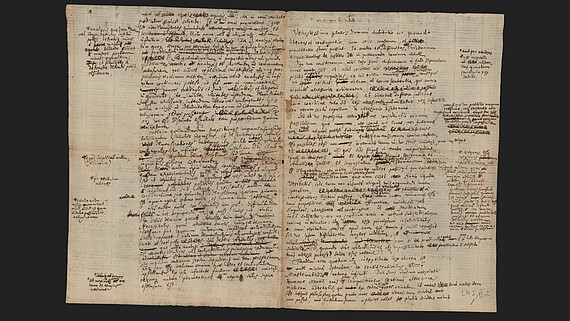
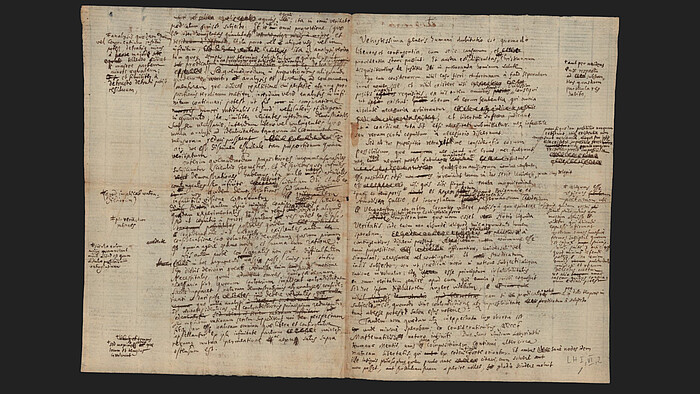
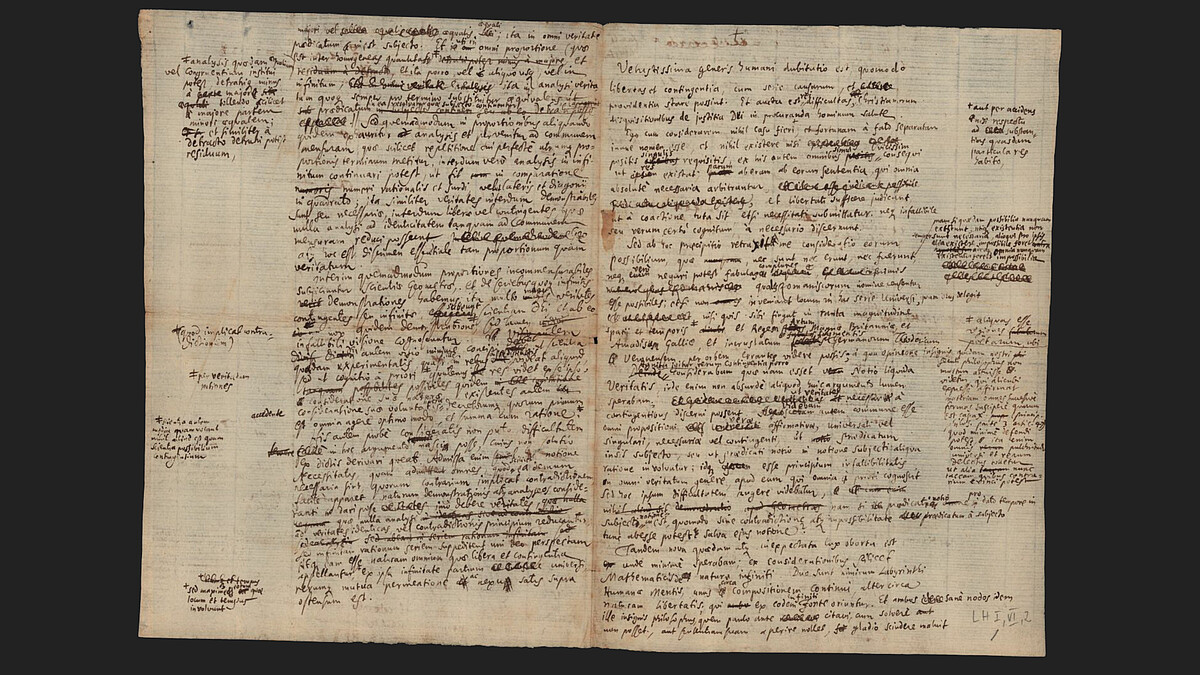 ©
Gottfried Wilhelm Leibniz Bibliothek, LH 1, 6, 2, Bl. 1r.
©
Gottfried Wilhelm Leibniz Bibliothek, LH 1, 6, 2, Bl. 1r.
On freedom
(German translation)
De libertate (first section of the original Latin text)
Gottfried Wilhelm Leibniz is the namesake of Leibniz University Hannover. The polymath’s ideas connect all of the faculties with and among one another. Leibniz’s life and work as it relates to the present and to current research at LUH is a central focus of the Communications and Marketing unit’s science communication.
Contact person, Communications and Marketing
30167 Hannover










